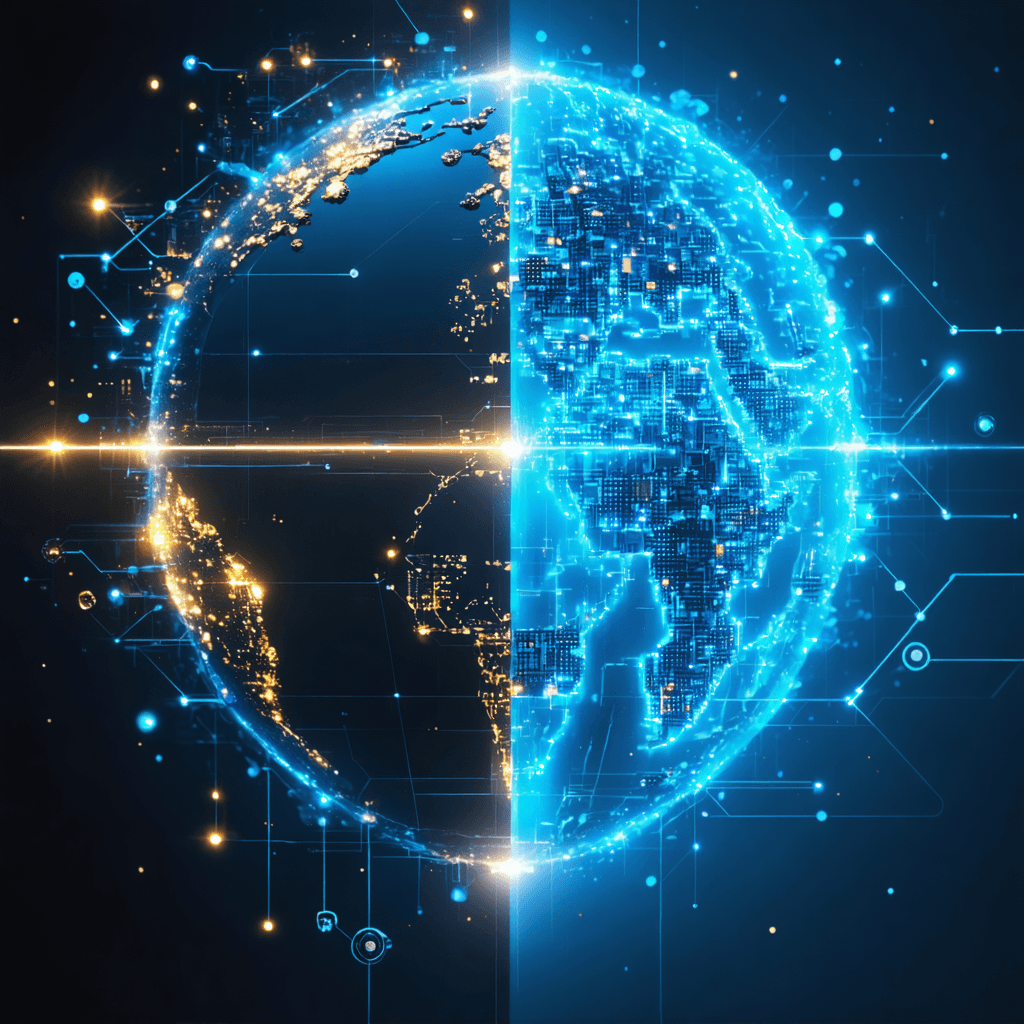AI Ethics Meets Decentralization: The Battle Between Global Control and Local AI Solutions
As the artificial intelligence landscape continues to evolve at breakneck speed, a crucial debate has emerged at the intersection of AI ethics and decentralization. This contentious battleground pits the forces of global, centralized AI control against the growing movement toward local, distributed AI solutions. Let's dive deep into this complex issue that's shaping the future of technology and society.
The Rise of Centralized AI Control
The current AI ecosystem is largely dominated by major tech corporations and governmental bodies that advocate for centralized control over AI development and deployment. This approach offers several advantages:
- Standardized safety protocols and regulatory compliance
- Concentrated resources for advanced research
- Unified ethical frameworks
- Streamlined development and deployment processes
However, this centralization comes with significant risks. As revealed in recent studies, the concentration of AI power in the hands of a few entities raises concerns about:
- Data privacy and sovereignty
- Algorithmic bias at scale
- Limited innovation due to bureaucratic constraints
- Potential abuse of power and surveillance
The Promise of Decentralized AI
Decentralized AI solutions have gained significant traction in 2024-2025, offering an alternative vision for the future of artificial intelligence. This approach emphasizes:
Local Control and Sovereignty
Communities and organizations can maintain control over their AI systems, ensuring alignment with local values and needs. According to recent developments, this has led to:
- Better adaptation to local contexts
- Improved privacy protection
- Enhanced community engagement
- More diverse and inclusive AI solutions
Technical Advantages
Decentralization brings several technical benefits:
- Increased system resilience
- Reduced single points of failure
- Better scalability
- Improved redundancy and fault tolerance
Ethical Implications
The ethical dimensions of this battle are particularly significant. Recent research from leading institutions highlights several key considerations:
Privacy and Data Protection
Decentralized systems often provide superior privacy protections by:
- Keeping data closer to its source
- Reducing the risk of massive data breaches
- Enabling granular control over data sharing
- Supporting data sovereignty principles
Algorithmic Fairness
Local AI solutions can better address bias and fairness issues by:
- Incorporating diverse perspectives in development
- Adapting to local cultural contexts
- Enabling community oversight
- Reducing systemic bias propagation
Practical Implementation Challenges
While decentralized AI shows promise, several challenges must be addressed:
Technical Infrastructure
- Ensuring consistent performance across distributed systems
- Maintaining security standards
- Managing resource allocation
Coordination and Standards
- Developing interoperability protocols
- Establishing common ethical frameworks
- Balancing local autonomy with global cooperation
Resource Distribution
- Addressing computational resource inequalities
- Ensuring fair access to AI capabilities
- Supporting smaller communities and organizations
The Path Forward
As we navigate this complex landscape, a hybrid approach is emerging that combines the benefits of both centralized and decentralized systems. Key recommendations include:
- Establishing clear governance frameworks that support local autonomy while maintaining global standards
- Developing open-source solutions that can be adapted to local needs
- Creating collaborative networks for knowledge and resource sharing
- Implementing robust security measures across distributed systems
Looking Ahead
The battle between centralized and decentralized AI solutions will likely continue to shape the technology landscape. Success will depend on finding the right balance between global coordination and local autonomy, ensuring that AI development serves the broader interests of humanity while respecting individual and community rights.
Ready to dive deeper into the world of AI ethics and decentralization? Explore our comprehensive courses and resources at 01TEK. Whether you're a developer, business leader, or technology enthusiast, we offer the tools and knowledge you need to navigate the future of AI. Visit 01TEK's course catalog today and take the first step toward mastering the intersection of AI ethics and decentralization.
Sources: [1] LinkedIn - Decentralization Insights [2] Modern Computing Vision and Challenges [3] ASEAN Guide on AI Governance and Ethics [4] McKinsey - AI-driven Enterprise 2030 [5] DNI Unclassified Report 2024
If plan ‘A’ fails
remember you have 25 letters left.”




